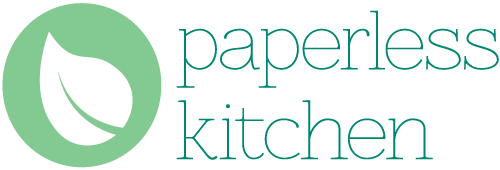PaperlessKitchen Blog
Introducing...Fit & Fresh
As a part of our Back to School department, we've added some new brands to the Paperless Kitchen family. One such brand is Fit & Fresh, a company committed to...
Introducing...Fit & Fresh
As a part of our Back to School department, we've added some new brands to the Paperless Kitchen family. One such brand is Fit & Fresh, a company committed to...
We're Sprouting New Products!
Paperless Kitchen has added a select number of green alternatives to our collection for Back to School. Green Sprouts is a company devoted to making nontoxic alternatives to everyday products...
We're Sprouting New Products!
Paperless Kitchen has added a select number of green alternatives to our collection for Back to School. Green Sprouts is a company devoted to making nontoxic alternatives to everyday products...
The Impact Of Paperless Cockpits
Earlier this year, we reported on American Airlines' newly approved iPad technology that allowed the airlines to reduce the size of the paper manuals that the FAA required pilots to...
The Impact Of Paperless Cockpits
Earlier this year, we reported on American Airlines' newly approved iPad technology that allowed the airlines to reduce the size of the paper manuals that the FAA required pilots to...
New Program Helps Reduce Wasted Paper When You ...
Even if you're making an effort to reduce how much paper you consume by printing at home or work, there are some things that still require you to switch on...
New Program Helps Reduce Wasted Paper When You ...
Even if you're making an effort to reduce how much paper you consume by printing at home or work, there are some things that still require you to switch on...
Paperless Kitchen Gets Some Press!
We have some exciting news! Just last week, we were featured on the CBS website! A link to our store was...
Paperless Kitchen Gets Some Press!
We have some exciting news! Just last week, we were featured on the CBS website! A link to our store was...
African Woman Uses Paper Waste to Support Her F...
With 10 children to feed, no husband and no means to find employment, Gabaiphe Tlhaloso of Francistown, Botswana was facing tremendous hardships. The single mother is illiterate, making her prospects...
African Woman Uses Paper Waste to Support Her F...
With 10 children to feed, no husband and no means to find employment, Gabaiphe Tlhaloso of Francistown, Botswana was facing tremendous hardships. The single mother is illiterate, making her prospects...
